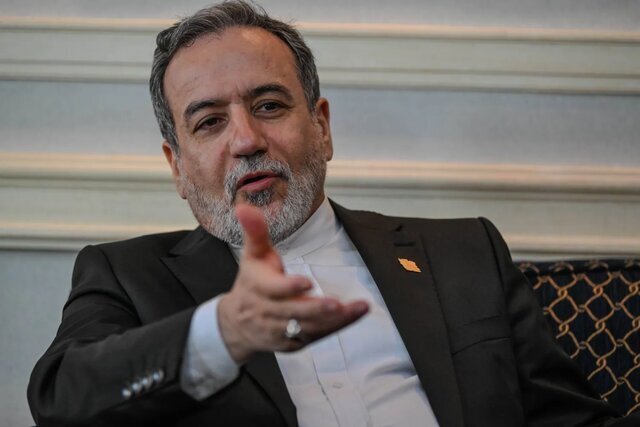Israel seeks to weaken Lebanon the same way it crippled Syria: Araghchi

TEHRAN – Iranian Foreign Minister Abbas Araghchi has reaffirmed Tehran’s commitment to preserving Syria’s sovereignty and territorial integrity, warning that Israel seeks to replicate in Lebanon the same destabilizing tactics it has employed in Syria.
In an interview with Asharq Al-Awsat, Araghchi rejected Israeli aggression and cautioned that excessive concessions to the Zionist regime have only encouraged it to push further. He said Iran remains opposed to any partition of Syria and continues to support the country’s sovereignty, borders, and stability. “Experience has shown that if stability and calm do not prevail, Syria can once again turn into a hub for terrorist groups, which would benefit no one in the region,” he said.
While noting that Tehran has not yet established contact with Syria’s new government, Araghchi said there was no rush. “When the new Syrian administration realizes that relations with Iran serve the interests of its government and people, we will certainly examine it,” he explained.
Turning to Lebanon, the top diplomat said Israel is attempting to strip the country of its defenses in the same way it has crippled Syria. “Look at Syria,” he remarked. “A new government is in place that is completely different from Bashar al-Assad’s, yet more of its land is occupied than before. Israel has bombed every military capability the new Syrian government had, leaving it with no strong defenses. This is exactly the fate they want for Lebanon.”
He dismissed allegations that Iran interferes in Lebanon, saying decisions about Hezbollah’s weapons belong to the Lebanese people, political parties, and the group itself. “Disarming Hezbollah is an entirely Israeli scheme,” Araghchi warned. “The only factor that has stopped Israel so far is the resistance. What deters Israeli aggression is not appeasement but strength. The more concessions you make, the more Israel will demand. Netanyahu is already talking openly about a ‘Greater Israel’ that stretches into Arab lands, even into half of Saudi Arabia.”
The Iranian foreign minister added that Tehran is open to cooperating with Saudi Arabia on Lebanon, noting that he had a “very constructive discussion” on the issue with his Saudi counterpart, Prince Faisal bin Farhan. “We may have differences, but we spoke rationally and calmly. I am sure Saudi Arabia, like us, wants to help the Lebanese people,” he said.
On broader ties with Riyadh, Araghchi described Saudi Arabia as “a major country in the region and the Islamic world,” adding that Iran also holds a pivotal position. “We have lived side by side in this region, we do so now, and we will in the future. Peace and stability can only be achieved through cooperation between Iran and Saudi Arabia,” he stressed. While acknowledging rivalry and disagreements, he emphasized that such competition must not turn into hostility.
He also underlined the importance of people-to-people exchanges, pointing to the annual Hajj pilgrimage—currently hosting over 80,000 Iranians—and the resumption of Umrah, which is expected to bring about 400,000 Iranian pilgrims this year. Araghchi expressed hope that Saudis would soon begin visiting Iran for tourism, saying they would discover a country with rich culture, history, and natural beauty, far from the image projected by Western media.
Commenting on regional reactions after the recent Israeli and U.S. strikes on Iran, the foreign minister praised Saudi Arabia and the Gulf Cooperation Council states for strongly condemning the attacks and expressing solidarity with the Iranian people. “Such a stance was very important for us,” he said.
Looking to the future, Araghchi said there is significant potential for economic cooperation with Saudi Arabia, including trade in goods and investment in Iran’s oil and gas sector. He noted Iran’s population of nearly 100 million and its unique transit links to Central Asia, the Caucasus, and the Indian Ocean as major advantages for bilateral trade.
Asked whether he is optimistic about the future of the region, the top diplomat replied: “Diplomats are always optimistic. I believe that if cooperation among regional countries, especially between Iran and Saudi Arabia, moves forward, we will have a region full of stability, calm, progress, and development. And I will work to guide Iran’s diplomacy in that direction.”
Leave a Comment